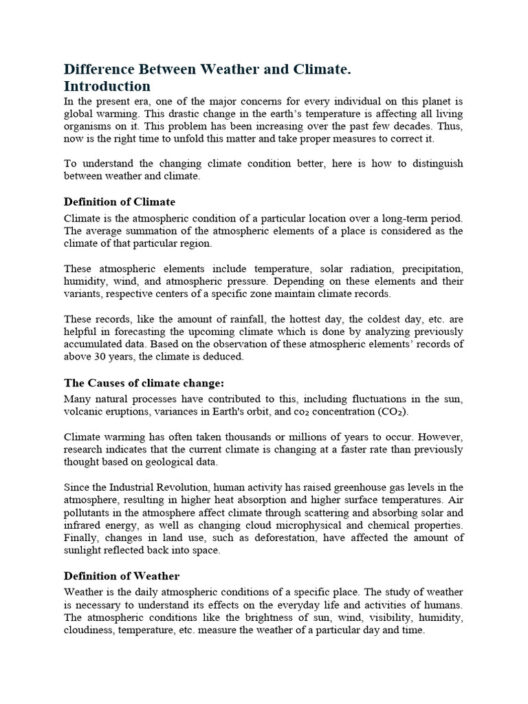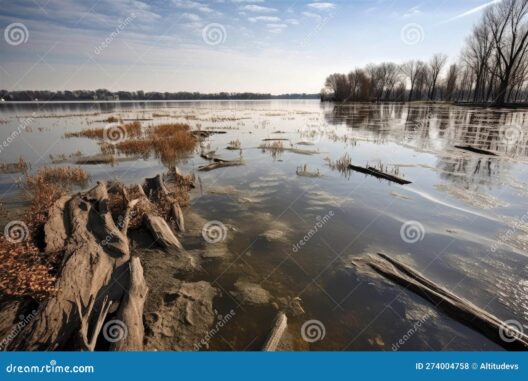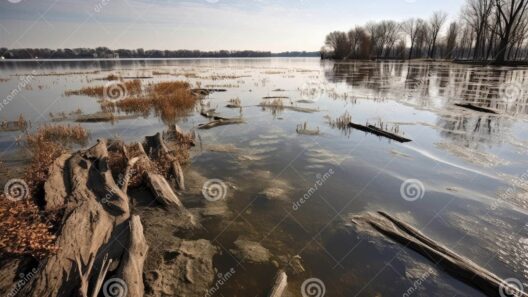The discourse surrounding global warming often oscillates between alarmist warnings and complacent dismissal. As diverse as the perspectives are, one is particularly controversial yet intriguing: the notion that global warming could have favorable aspects. This proposition deserves thorough examination, not simply for its audacity, but because it offers an opportunity to reevaluate human adaptability, technological innovation, and ecological balance.
In a world where the climate dialogue is saturated with urgency, envisioning global warming as an opportunity is akin to finding a diamond buried within the coal. Every challenge presents a myriad of potential solutions if addressed with ingenuity and foresight. A comprehensive exploration requires an understanding of the multifaceted nature of climate change, juxtaposed with the benefits it may inadvertently furnish.
One primary argument revolves around agricultural productivity. As temperatures rise, some regions, previously inhospitable due to harsh climates, could become viable agricultural lands. The northernmost territories, such as parts of Canada and Russia, may experience enhanced growing seasons, leading to increased yields of crops such as wheat and barley. Hence, a new agricultural frontier could emerge, shifting the axis of global food production. The metaphor of ‘the new harvest’ reflects an optimistic view, one where increased agricultural diversity could combat food insecurity and stimulate local economies.
Furthermore, the changing climate may provoke a renaissance of technological innovation. Historically, human beings have demonstrated remarkable ingenuity in the face of adversity. The rise in average temperatures, while daunting, compels a surge in the development of renewable energy technologies, carbon capture systems, and sustainable agriculture practices. The innovative spirit thrives not merely in comfort but in challenges. Initiatives promoting solar, wind, and hydroelectric solutions will likely proliferate as societies endeavor to mitigate the adverse consequences of a warming planet.
The metaphor of ‘the phoenix rising from the ashes’ encapsulates this potential transformation. Embracing renewable energy not only promises a reduction in greenhouse gas emissions but could also lead to economic revitalization in sectors previously tethered to fossil fuels. Countries dependent on oil extraction, for instance, might find new pathways for economic stability and job creation through investment in green technologies. An entire workforce could recalibrate skills, aligning them with the demands of an unfolding energy economy.
Moreover, as polar ice melts, new navigation routes are opening in the Arctic. The Northwest Passage, long considered a mythical shortcut connecting the Atlantic and Pacific Oceans, is gradually becoming a reality. This opens avenues for international shipping, potentially reducing global shipping times and costs. Additionally, access to untapped natural resources in fragile yet previously inaccessible regions poses both opportunities and ethical dilemmas. The metaphorical ‘opening of Pandora’s Box’ suggests that while benefits may arise, associated risks to fragile ecosystems and indigenous communities necessitate a judicious approach.
Conversely, it is essential to reflect on the potential allure of warmer temperatures for human comfort. Habitats in temperate regions may become more desirable as winters grow milder. Increased tourism in locations like Scandinavia and Siberia could embrace newfound popularity, bringing economic growth to regions long overlooked in global travel itineraries. The intriguing metaphor, ‘the allure of the thaw,’ illustrates how shifts in climate may invite a fresh interpretation of lifestyle preferences and leisure activities. Outdoor tourism, like hiking and camping, could flourish in regions once deemed unsuitable.
Nevertheless, one must tread carefully in clinging to too sanguine a perspective. The central paradox lies in the fact that while certain areas could flourish, others may face catastrophic repercussions. More extreme weather events, sea-level rise, and shifting biodiversity will invariably bring about chaotic changes, resulting in displaced communities and faltering ecosystems. The metaphor of ‘the double-edged sword’ serves as a poignant reminder of the complexity within this discourse. The benefits one region might reap could translate into devastating impacts elsewhere, underscoring the interconnectedness of global systems.
Adaptation to global warming would equally demand collaborative international efforts. Global warming cannot be tackled in isolation; it necessitates collective wisdom. The metaphor of ‘the global tapestry’ epitomizes the intricate interplay of human ingenuity and resilience in response to climate change. Diverse cultures, economies, and technologies must converge to share knowledge, best practices, and solutions that mitigate the warming effects globally. Sharing resources and strategies for climate adaptation across borders can foster solidarity and innovation.
In conclusion, contemplating whether global warming could bear fruit does not imply defiance against empirical realities. Instead, it invites a nuanced dialogue about resilience, adaptation, and potential benefits intertwined with formidable challenges. Through innovative thinking, societal shifts, and collaborative endeavors, humanity has the capacity to address the intricate tapestry of climate change effectively. Dissecting this topic with an open mind may compel us to reconsider our pathways forward, recognizing that even from adversity, new opportunities might spring forth—if we dare to seek them earnestly.








